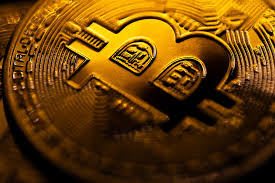
Breaking News
 Bitcoin Circular Economies and a Bridge Between Las Vegas and Peru
Bitcoin Circular Economies and a Bridge Between Las Vegas and Peru
 'Right of Return' for Israeli Child Predators Fleeing U.S.
'Right of Return' for Israeli Child Predators Fleeing U.S.
Top Tech News
 NVIDIA just announced the T5000 robot brain microprocessor that can power TERMINATORS
NVIDIA just announced the T5000 robot brain microprocessor that can power TERMINATORS
 Two-story family home was 3D-printed in just 18 hours
Two-story family home was 3D-printed in just 18 hours
 This Hypersonic Space Plane Will Fly From London to N.Y.C. in an Hour
This Hypersonic Space Plane Will Fly From London to N.Y.C. in an Hour
 Magnetic Fields Reshape the Movement of Sound Waves in a Stunning Discovery
Magnetic Fields Reshape the Movement of Sound Waves in a Stunning Discovery
 There are studies that have shown that there is a peptide that can completely regenerate nerves
There are studies that have shown that there is a peptide that can completely regenerate nerves
 Swedish startup unveils Starlink alternative - that Musk can't switch off
Swedish startup unveils Starlink alternative - that Musk can't switch off
 Video Games At 30,000 Feet? Starlink's Airline Rollout Is Making It Reality
Video Games At 30,000 Feet? Starlink's Airline Rollout Is Making It Reality
 Automating Pregnancy through Robot Surrogates
Automating Pregnancy through Robot Surrogates
 Grok 4 Vending Machine Win, Stealth Grok 4 coding Leading to Possible AGI with Grok 5
Grok 4 Vending Machine Win, Stealth Grok 4 coding Leading to Possible AGI with Grok 5
Bitcoin Circular Economies and a Bridge Between Las Vegas and Peru

But that's what happened when I — a consultant, ex-Deloitte, and fundraiser with nine years of experience in the nonprofit sector — landed at the Bitcoin Conference Las Vegas looking for something bigger than "business as usual." Fundraising had started to feel like… well, just fundraising for the sake of fundraising.
What surprised me most, though, was how quickly I found myself swept up by the conference energy. On my very first day, I ended up volunteering with the Open Source Hub. There, I was able not only to help build bridges between innovative projects but also to connect more deeply with teams like Primal and see how Nostr opens doors for Latin American circular economies.
On Day Two, while most people were still asleep, I showed up early, determined to pick out a Bitcoin present for my nieces. Among the buzzing Bitcoin bazaar stands, I found a booth with beautiful children's books and merch, and as luck would have it, found myself chatting with Fernando Motolese — the founder of Bitcoinze. Right place, right time! He ordered 200 Portuguese-language kids' books, and as two Lusophones got talking, he told me bluntly:
"If you want to see Bitcoin change lives, you need to talk to Valentin Popescu from MOTIV PERÚ."
Years earlier, I lived in Peru, working for an NGO alongside Inca communities, where I'd find myself having guinea pig for breakfast and alpaca for dinner. No WiFi, no bathrooms, only latrines. The idea of saving money was so foreign, we didn't even have a local word for it.
That's the harsh reality: In so much of Latin America, the concept of saving doesn't even exist, let alone the tools to do it. For many, life is simply about surviving today — not building for tomorrow. When I met Valentin, everything clicked: this person wasn't just talking about Bitcoin as tech or investment. He was making Bitcoin a tool for hope, for learning, for self-sufficiency… for actual change.
Picture this: Deep in Peru's Sacred Valley, along Amazonian rivers, entire communities are leapfrogging the financial system that forgot them. At Motiv Perú centers, kids and entrepreneurs get paid in sats for learning, for teaching, for building stuff. You earn, you save, you spend — all with bitcoin. No fragile cash, no corrupt intermediaries. Like all circular economies, they're growing from the bottom up.
Here's the kicker: Because of Motiv Perú, these communities and circular economies aren't just surviving — they're dreaming. They're seeing a future where they can work, own and save. Bitcoin is also accepted for everything: bread, haircuts, even trips to Machu Picchu.

 How Great Powers Fall Apart
How Great Powers Fall Apart
 Zionism Is What It Does
Zionism Is What It Does HERE COMES THE MOTHERSHIP
HERE COMES THE MOTHERSHIP

